This site contains affiliate links. I may earn a small commission, at no extra cost to you.
The popular sports drink in the US, Celisus, has had a few reports on social media about causing acne. But what is the truth – does Celsius cause acne?
In this blog I’ll talk about why the Celsius drink and energy drink consumption in general can often lead to acne breakouts.
Long story short, consumption of energy drinks can sometimes give you significantly more of a vitamin than you need.
For example, B12 and biotin. Both of these, when consumed in excess, are known to cause acne breakouts.
Let’s get into the detail about sports drinks and how to tell if it might break you out or not.
Key ingredients in sports drinks
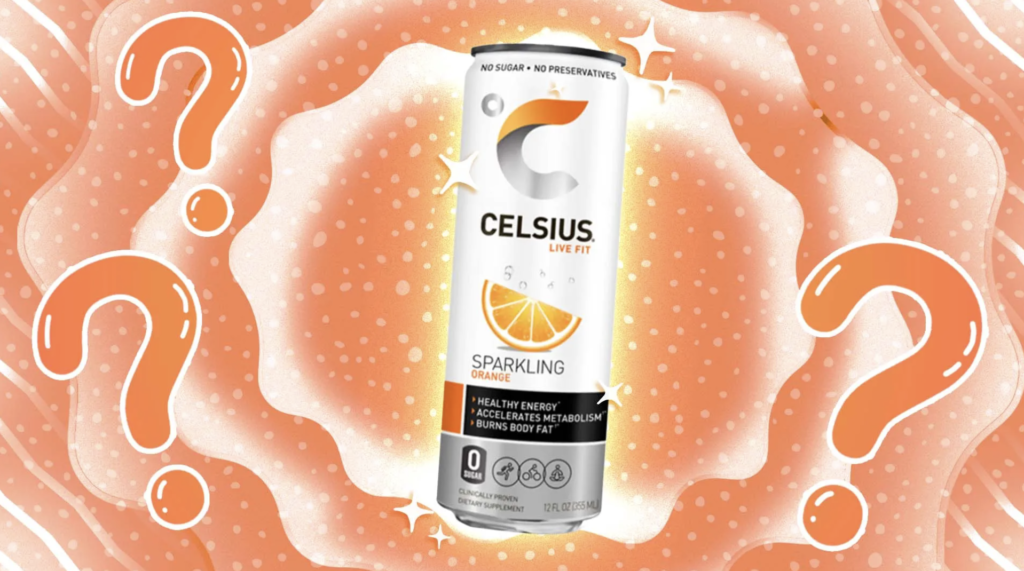
Not all sports drinks are the same as Celsius, and not all bodies will react the same to a product.
However, there are a few common things to watch out for that may affect skin health:
High caffeine content
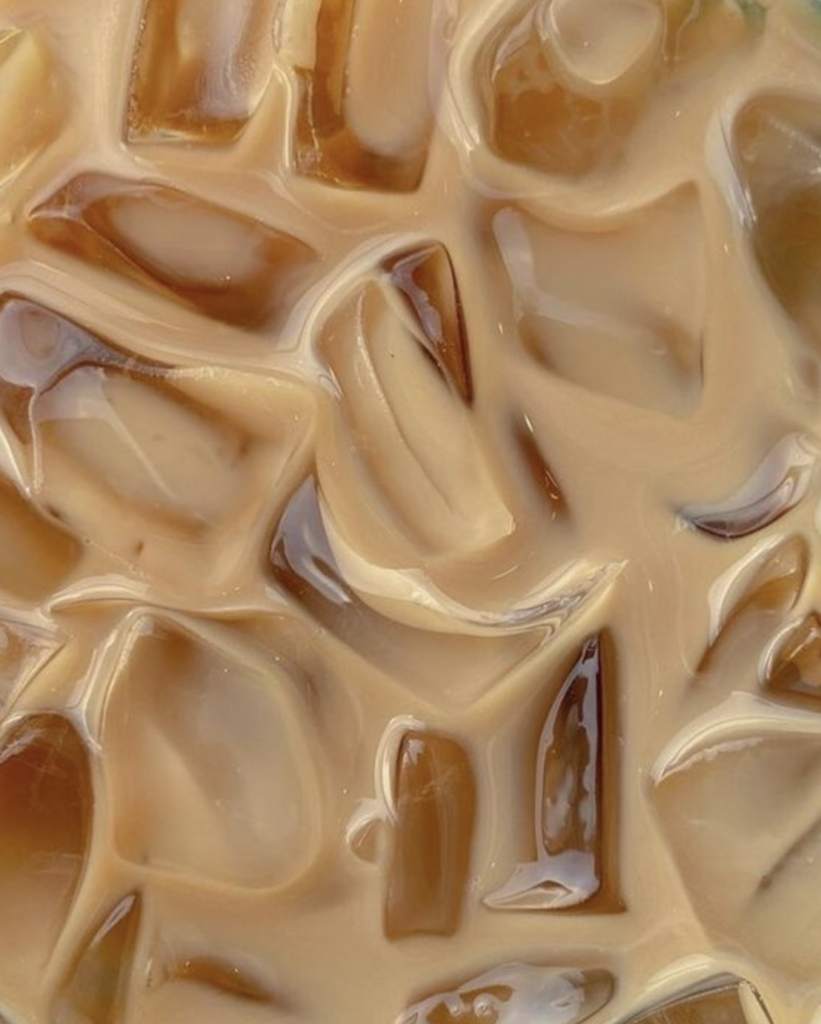
Caffeine isn’t inherently bad for skin health, but it can affect you in multiple ways which can have a knock on effect on your skin.
For example, if you drink caffeine throughout the day, it’ll likely disrupt your sleep.
Even if you feel well rested and think you slept fine, your sleep was likely still disrupted.
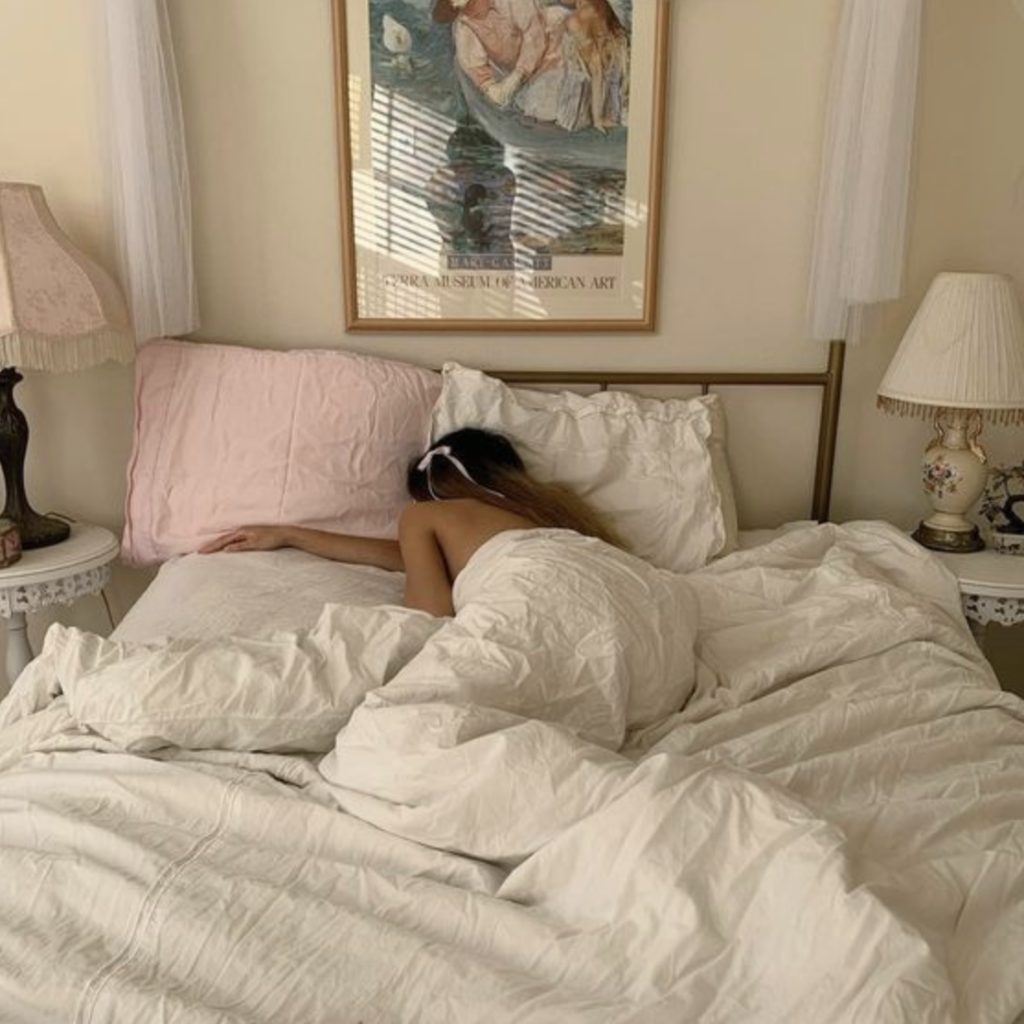
Poor sleep quality can raise your stress levels, stress hormones (cortisol levels) and make you more prone to breakouts.
If you already have acne-prone skin, this will affect you even more and it is why good sleep quality is recommended if you’re acne prone.
My recommendation is to not drink too much caffeine if you can help it, more than two cups of coffee is probably too much.
Sleep and blood sugar levels
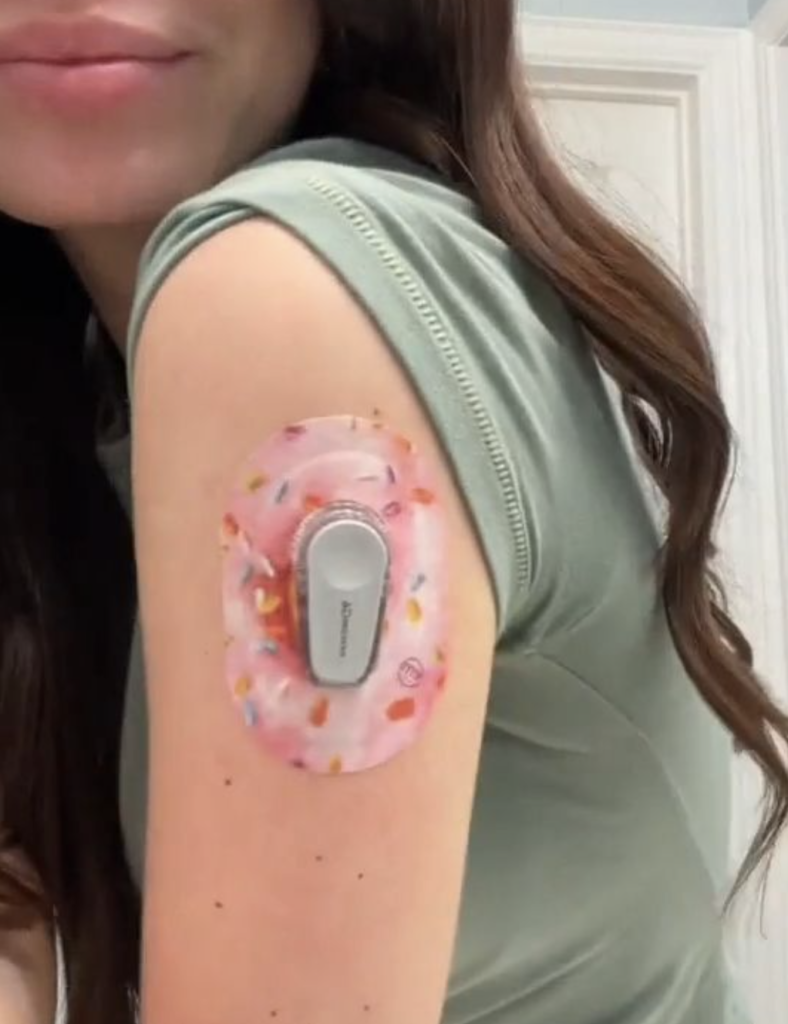
Poor sleep can also impact your blood sugar levels negatively. When you get even one night of poorer sleep than usual, your body’s insulin response can be worsened.
As a result, your blood sugar levels rise more significantly in response to the food you eat. When this happens often, your acne breakouts can increase.
This is why PCOS sufferers often have acne, because they often have a degree of insulin resistance.
To improve your insulin sensitivity you can:
- Get a regular 7-9 hours sleep
- Good sleep quality by limiting caffeine before 10am
- Exercise regularly
- Strength train to gain lean muscle mass
- Limit sugar to limit your blood sugar levels spiking
- Eat a high protein diet
- Daily hot girl walk (walking!)
Whey protein and acne

Not all sports drinks contain whey protein, but some do. Whey protein is a dairy substance that has been shown to contribute to acne, especially when consumed in high amounts on a daily basis.
You’ll find whey protein in most drinks that are a milkshake consistency, but you can also find it in clear whey products.
The link between whey protein and acne isn’t bulletproof, but there are some convincing findings.
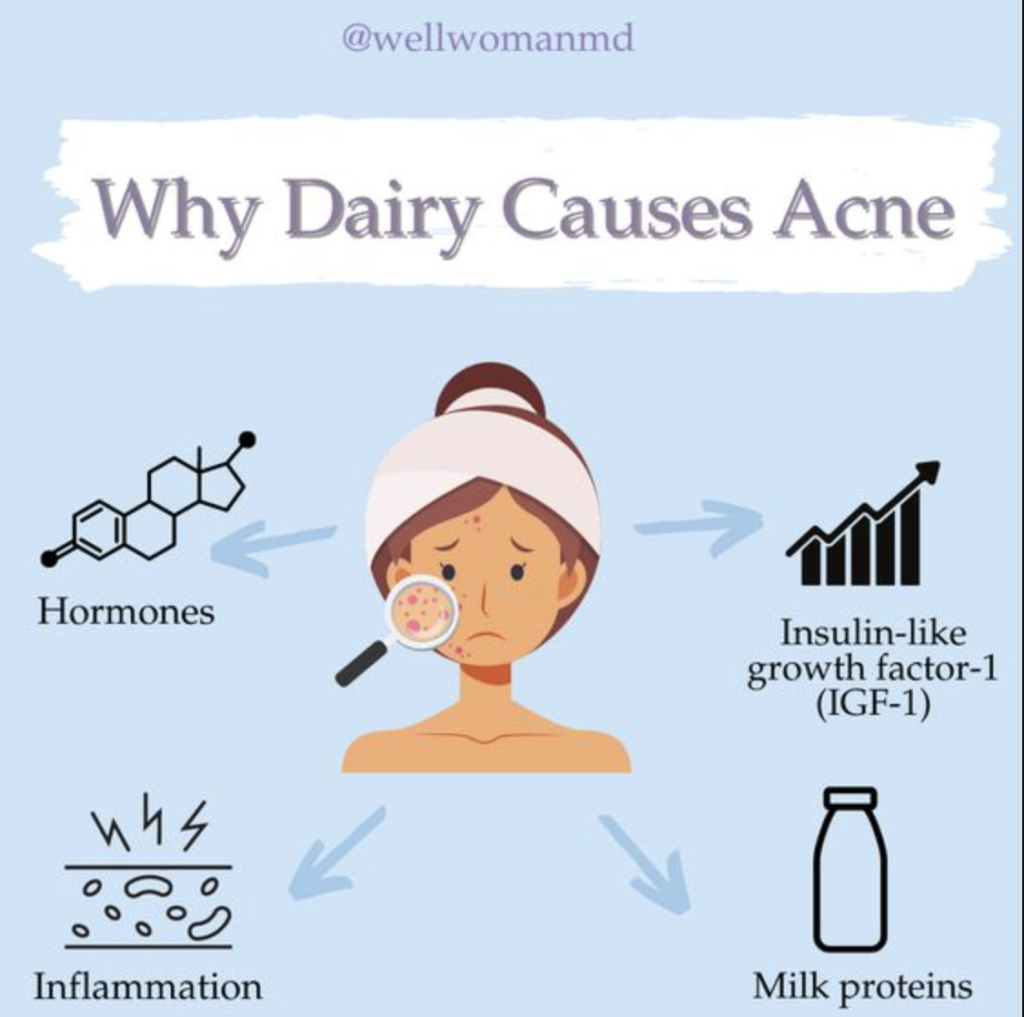
The theory is that a high level of whey can cause an increase in the hormone called insulin-like growth hormone 1 (ILGF-1).
In turn, this can cause a temporary change in the sebaceous glands and sebum production, leading to more breakouts.
If you’re especially acne prone, a vegan protein might work best for you. Personally I like the MyProtein vegan protein that contains pea and fava bean.
Whatever you choose, just make sure it’s not got lots of added B12 or biotin in it.
Vitamin B12 and acne
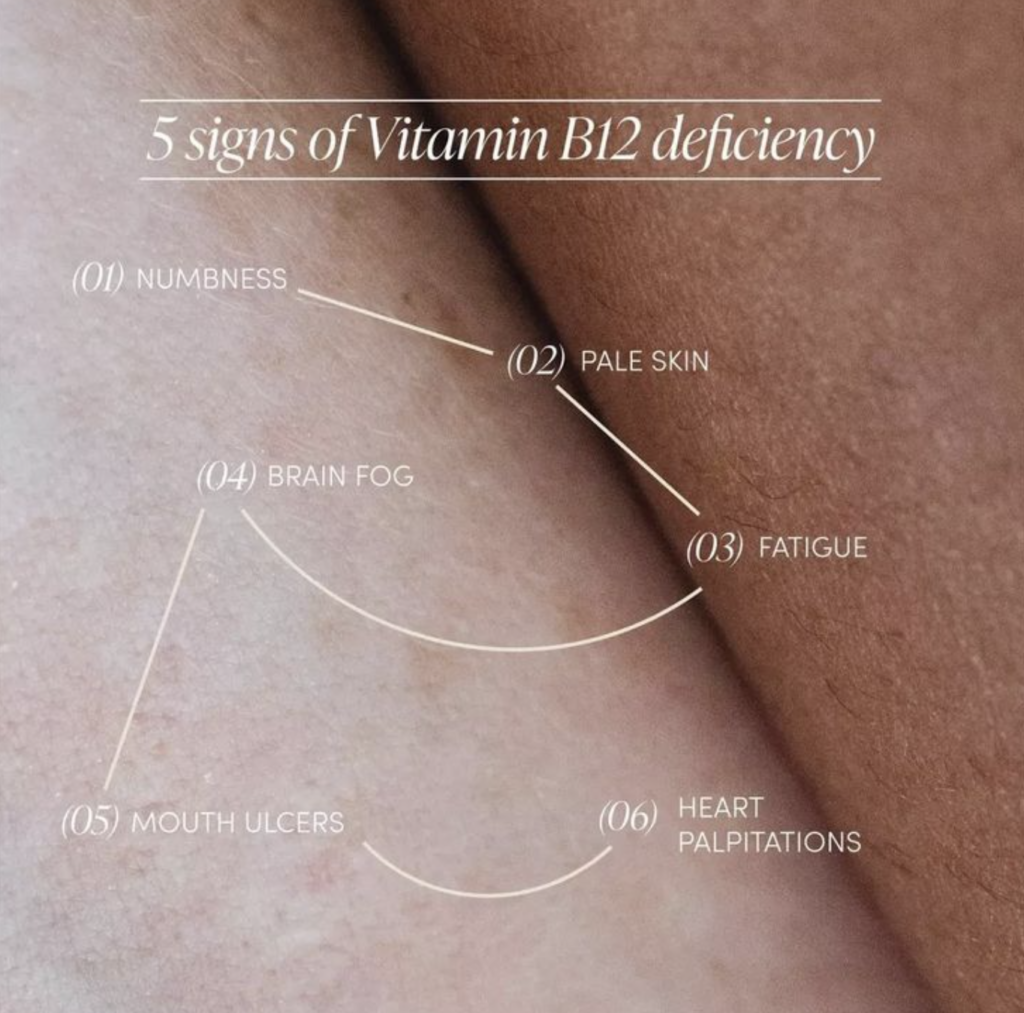
Does Celsius cause acne? Well it’s not so much the drink itself, moreso the vitamin profile of the drink that might contribute to breakouts.
B12 is a main culprit contributing to acne breakouts from drinking Celsius.
Taking vitamin B12 in high doses has been shown to cause acne breakouts in 1 in 10 people – I was one of them! It’s one of the most unfortunate side effects, especially since it’s supposed to help skin and hormones.
It’s not just in Celsius drinks that this can happen, it’s anything containing high does of B12 such as:
- PMS or PMDD supplements (this is what I took!)
- Multivitamins
- Supplements for hair and nails
- Fortified cereals and milks
- It’s also often found in a lot of vegan products
Biotin and acne
Another main culprit of skin issues from sports drinks is biotin.
Sadly, even though biotin can be helpful for some people, it often can worsen acne for others.
Personally I avoid it entirely, having been burned in the past.
Sugar and artificial sweeteners
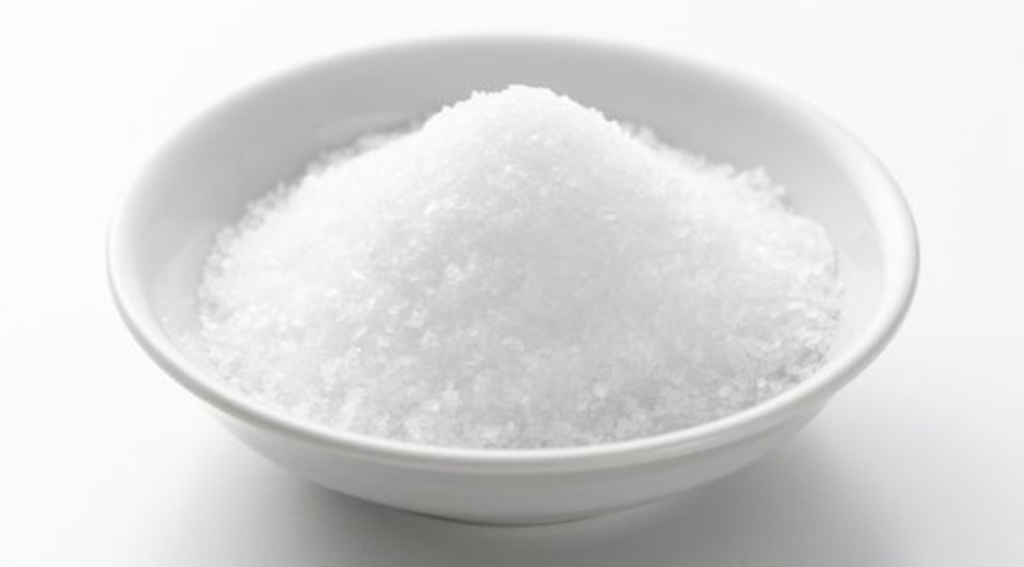
We all know that sugar can worsen acne, but Celsius drinks are usually all sugar free.
For this reason, it’s unlikely that sugar is contributing to whether Celisus causes acne breakouts for you.
When it comes to artificial sweeteners and acne, there is no direct link yet.
However, I do know from both personal experience and written studies, that there is a link between sweeteners and poor gut health.
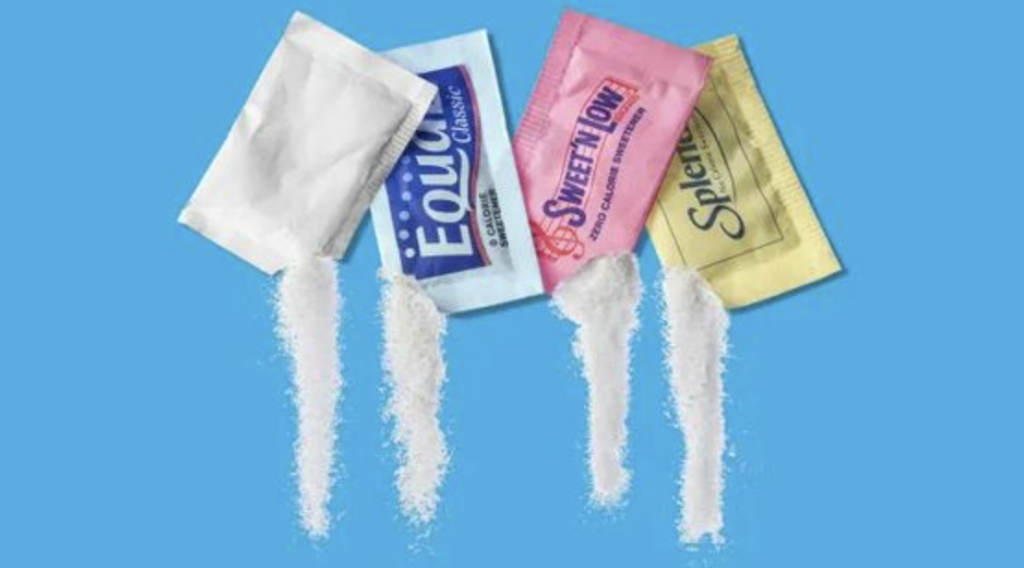
Sweeteners, particularly sucralose, can cause urgency when needing the toilet! As well as bloating and stomach aches, it’s worthwhile to avoid eating these on a daily basis.
Over time, you might develop gut dysbiois, which can contribute to acne and broader skin issues.
Gut dysbiosis is essentially an imbalance in the bacteria within the gut microbiome, and can cause a myriad of issues.
For top gut health, stick to whole, unprocessed foods.
What do breakouts from Celisus look like?
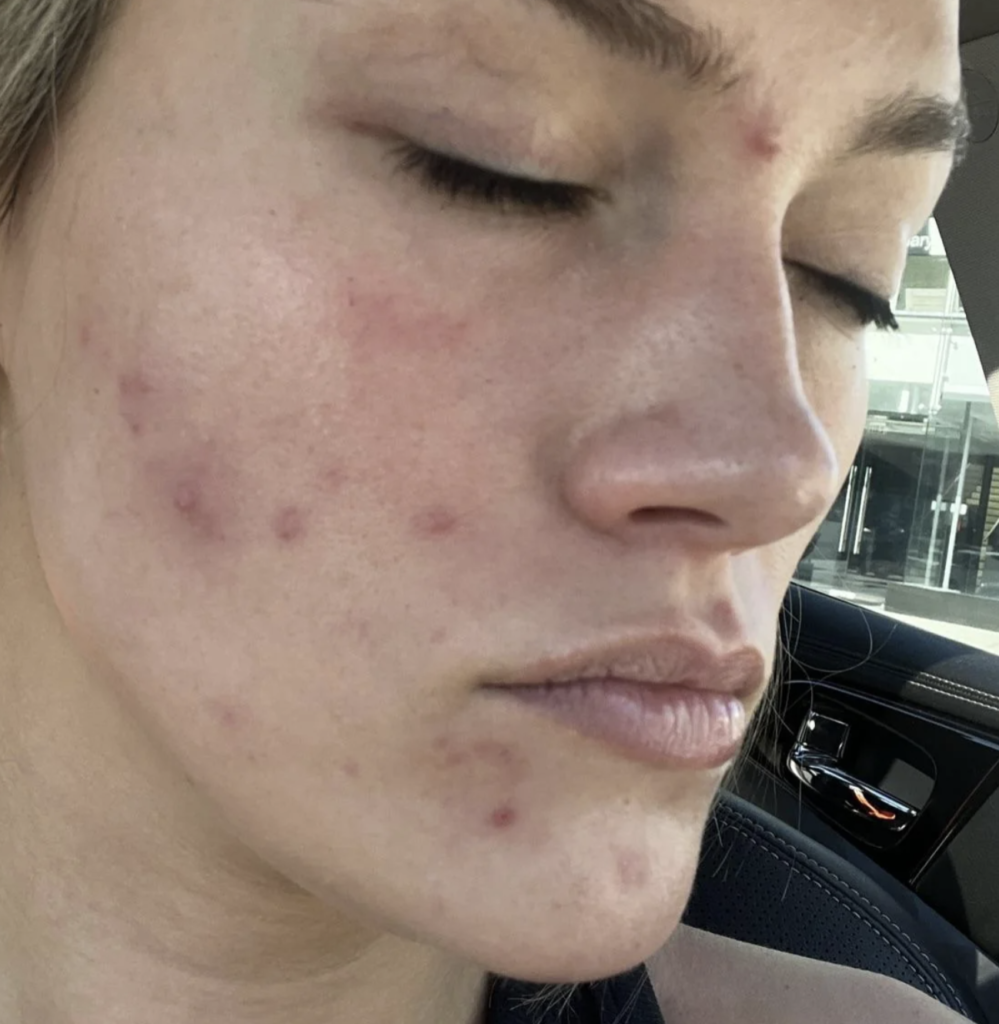
Breakouts from consuming a lot of Celsius or other products with lots of B12 and/or biotin will look similar.
I’ve had it a few times from a variety of things and, when compared to the internet’s experience, they all have a certain ‘look’ to them:
- Inflamed look and feeling, reddish
- Make take a while to go away. Can feel like the pimple is just sitting there for days
- Sometimes cystic acne, though less common
Essentially a sudden change in your skin, different from your normal breakouts. Personally, I woke up to 3-4 red pimples along my jaw – where I pretty much never get pimples at all.
At that point I immediately knew something was wrong.
Acne products for breakouts from drinking Celsius
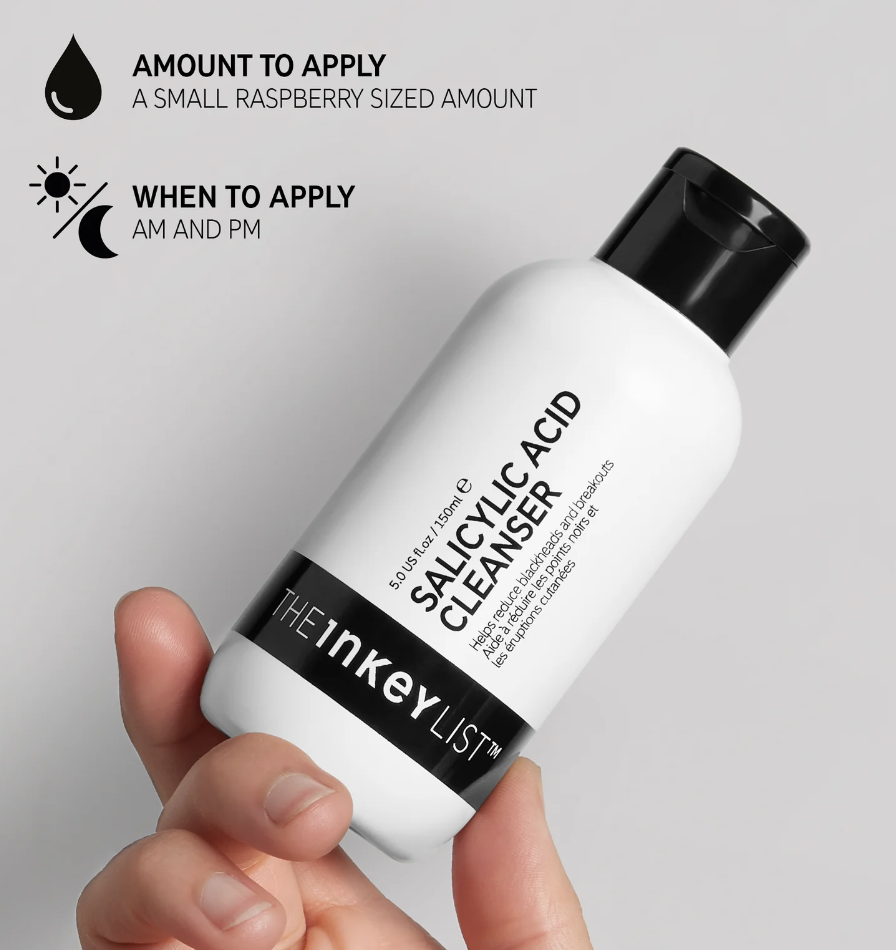
The best way to clear acne from drinking Celsius, or any other product, is to stop consuming it. It can take a little while for it to leave your system, so I’d give it at least a month for things to return to normal.
If you want to help it along, steer clear of the obvious choices like Clearasil products. Sadly, they often dry your skin out and make things worse.
Something simple like a salicylic acid toner might come in handy, just to speed up the area’s healing.
However, it can also be drying and damage your skin barrier, so don’t over-do it.
How to use salicylic acid for breakouts from B12 and biotin:
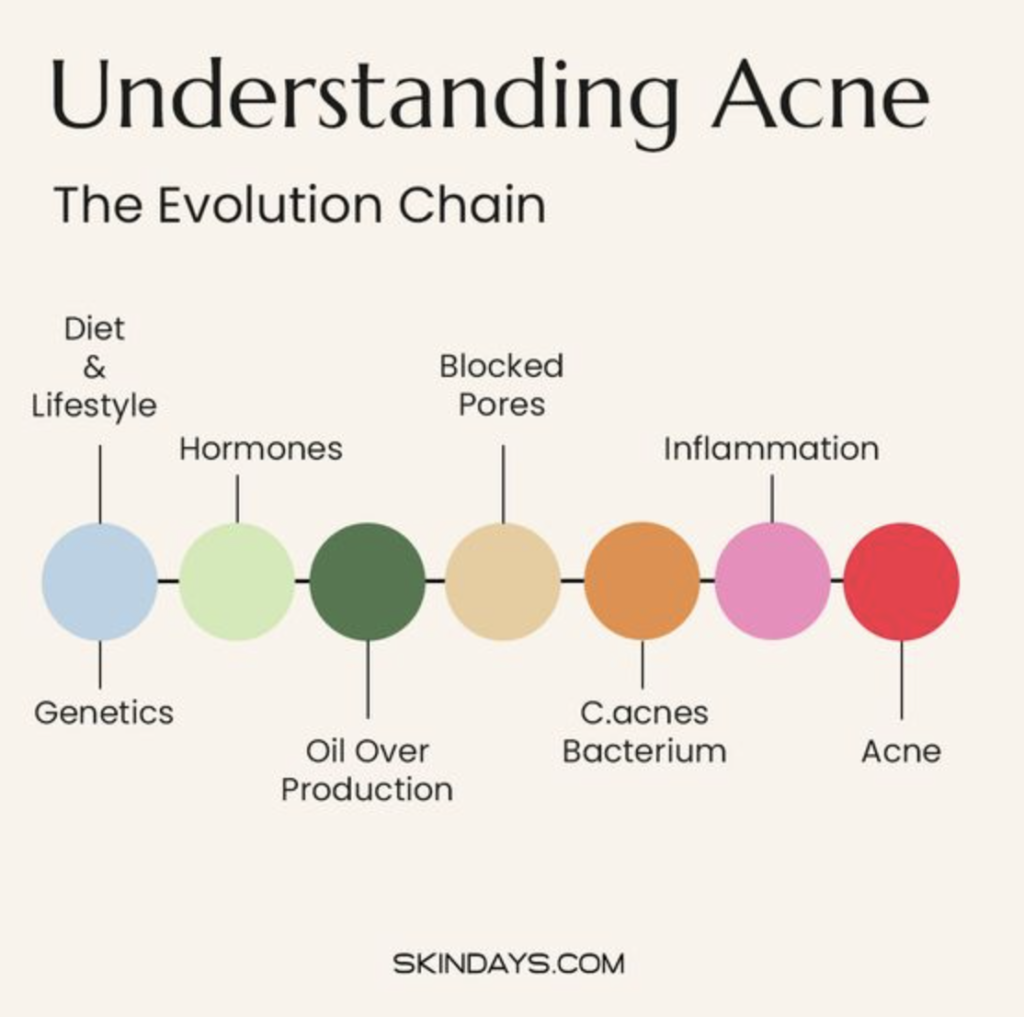
Salicylic acid sloughs away dead skin cells which contribute to clogged pores and acne breakouts.
Breakouts can increase especially if your oil glands have begun to produce more oil due to increased B12, for example.
You can get salicylic acid in the form of a face wash, serum or toner. It’s one of the most common active ingredients recommended for acne vulgaris BUT it’s not for all skin types.
Because of how deeply it penetrates the pore, it can be quite drying. Personally, I find it too drying for my dry/normal skin type.
Here’s how I’d recommend using salicylic acid:
- Only treat the affected areas. If it’s just your chin breaking out, apply the product to your chin only.
- If you’re using a wash, lather it up and leave it on the area for 1-2 minutes to get the full effect of the salicylic acid.
- Don’t use it every single day to start, this will probably be too drying. Test the waters slowly and work up to every other day if you like.
You can use salicylic acid long term without any negative consequences. Many people use it regularly to maintain clear skin, but it does not reduce fine lines like a retinoid would.
To find out more about how retinoids work, read my post on how to get rid of clogged pores.
Are benzoyl peroxide products safe?
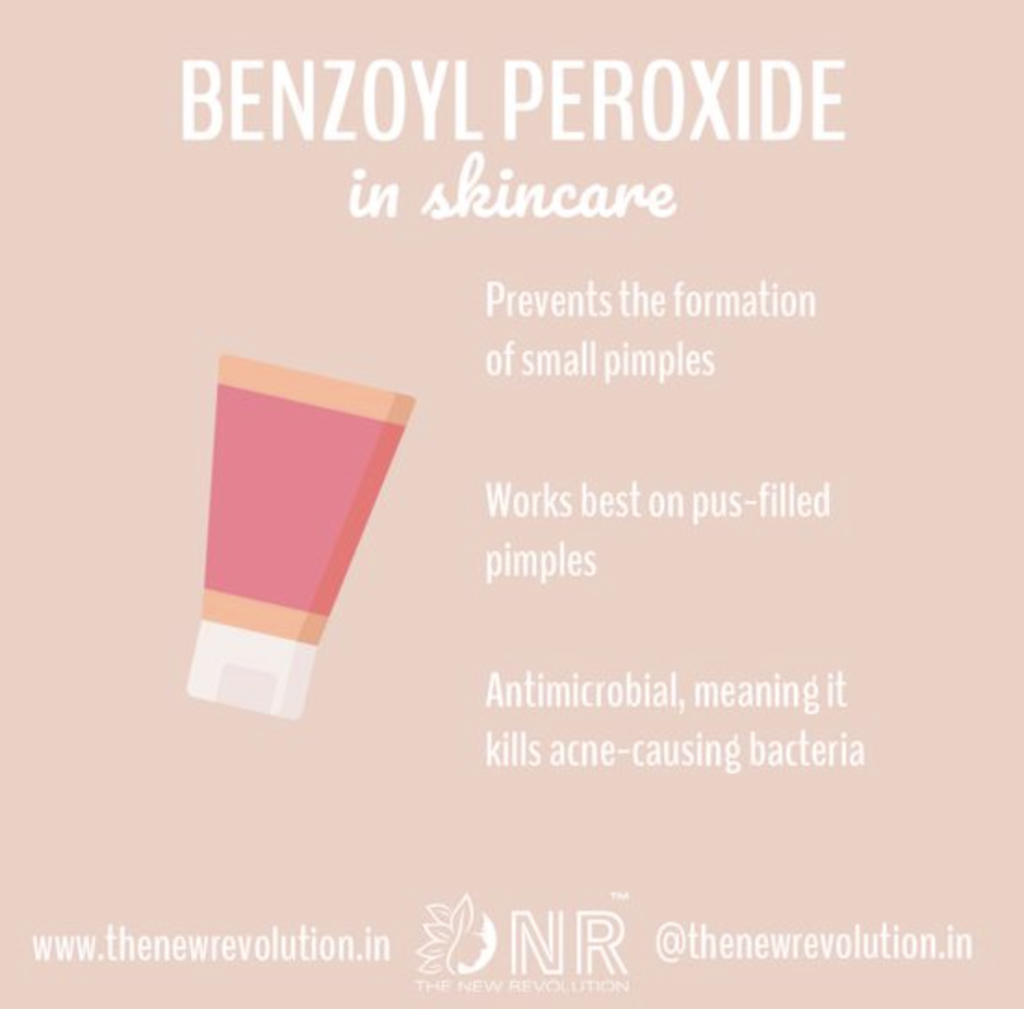
Benzoyl peroxide is another one of the most popular acne treatments. Benzoyl peroxide works differently to salicylic acid in that it is antibacterial.
It effectively kills off acne bacteria on the skin, meaning there is fewer bacteria to mix with the oil on your face. Effectively stopping the intersection where acne can begin.
Lately there has been some misinformation in the news about the safety of benzoyl peroxide.
A study by Valisure has stated that benzoyl peroxide breaks down into benzene in an extremely high room temperature. Benzene is a known carcinogen.
Valisure president David Light is now saying this means benzoyl peroxide products are unsafe. In reality, the concern is only present if you’re leaving your benzoyl peroxide in super high temperatures – which most people aren’t.
Such data seems therefore purposefully misleading, unfortunately. I recommend checking out Michelle Wong’s coverage of this story, as she’s very knowledgable about this type of topic.
So, does Celsius cause acne?
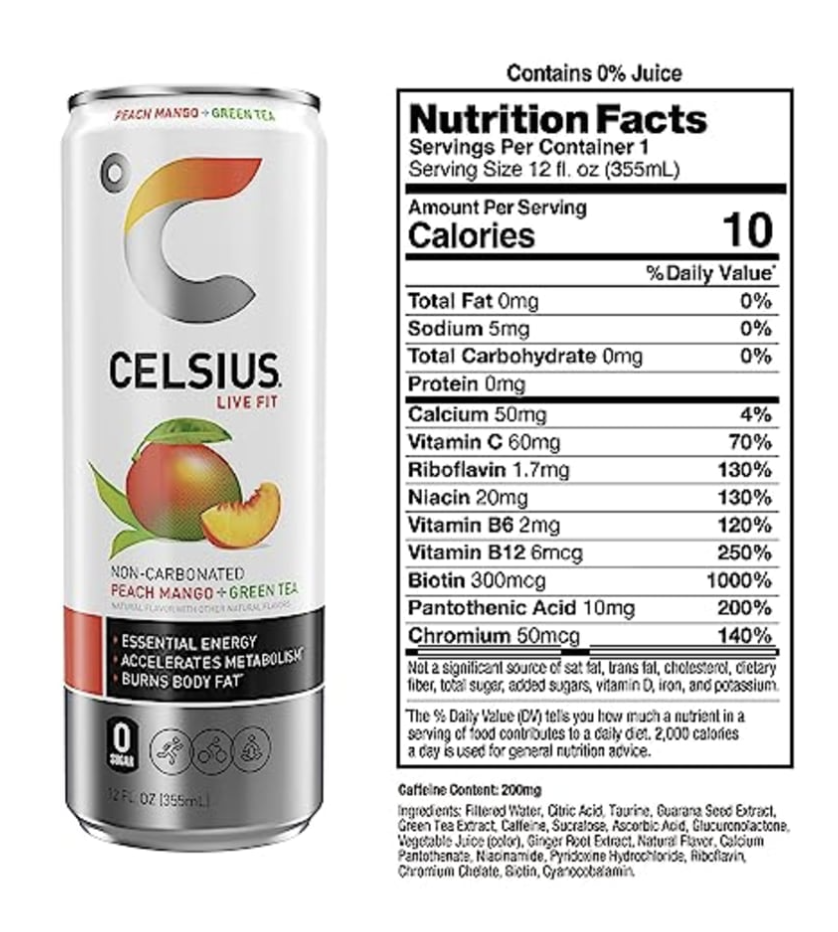
All in all, it seems to me that there is good evidence the suggest that Celsius can cause acne breakouts in certain individuals.
This is not because of the drink itself, but more the vitamins added to it and their respective amounts. It contains 1000% of your recommended daily intake of biotin, and 250% of B12 – that’s a lot!
If Celsius were to remove these vitamins, however, the risk would decrease.
I notice that the public often perceive added vitamins to have health benefits, but honestly I don’t think they are worth your time.
Having a Celsius drink once every now and then is unlikely to cause you any major problems, but drinking them daily or often is not a healthy idea.
Not only can the caffiene interfere with your sleep, but it can have knock on effects on your skin.
Couple that with the added vitamins, of which you should get enough from your diet, it’s a risky move if you’re acne prone.
I’d always recommend eating a whole foods diet as much as you can, so you don’t have to rely on energy drinks to give you a boost.
This was does Celsius cause acne? You may also like:
- Does Vegan or Whey Protein Cause Acne Breakouts?
- Can IBS Cause Acne? How Your Gut and Acne are Connected
- 10 Hormonal Acne Foods for Glowing Skin and Reduced Inflammation